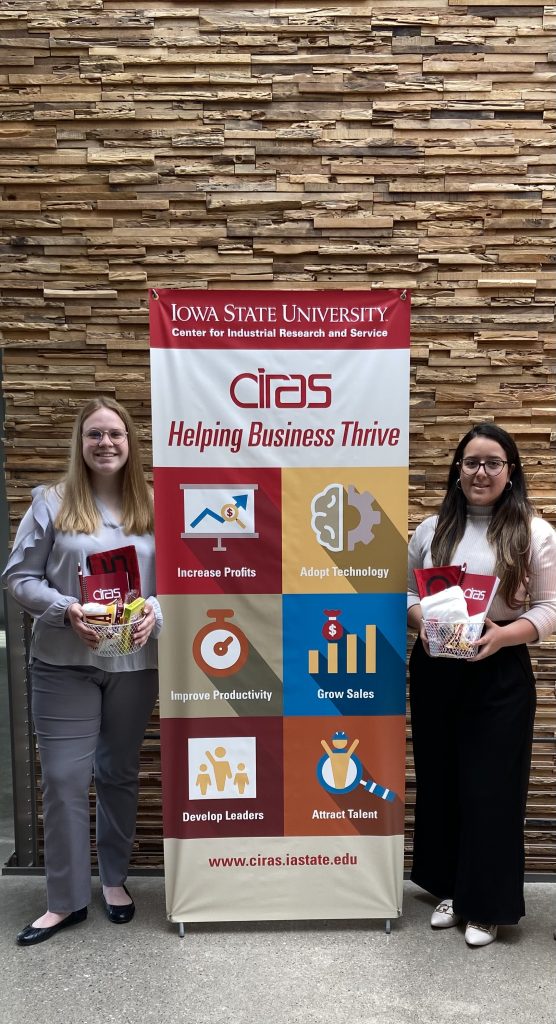
When Marlene Hernandez graduates from Iowa State University next spring, she’ll do so with newfound self-confidence and a resume packed with experience. As an intern with CIRAS, Hernandez delved into everything from employee compensation issues to safety and health. “It has made me feel more confident in my capabilities and has helped me develop professional skills,” she said. “I feel 100% sure I have what it takes to be successful in the workplace.”
Hernandez was one of five summer interns CIRAS mentored as part of a larger program with Manufacturing Extension Partnership (MEP) to attract under-represented groups to technical and managerial roles in manufacturing. “This internship program is a first step in diversifying our own talent pipeline and exposing the next generation of diverse talent to small to midsize manufacturers,” said Mayra Ramirez, workforce engagement specialist at CIRAS.
“The interns are gaining valuable real-world work experiences as students,” she added.
Hernandez, a double major in business management and marketing from Mexico, is continuing with CIRAS this fall as an assistant business analyst. Meanwhile, fellow intern Cassie Larsen, an industrial engineering major from Muscatine, spent the summer designing in AutoCad and SolidWorks to optimize manufacturing plant layouts. Both interns said the experience exposed them to new career options. “I had the unique experience of working with and doing projects for a lot of different industries, so it has widened my horizons to jobs that I either did not know existed or knew little about,” Larsen said.
Ramirez considers an internship program to be a key tool to attract top young talent, especially for smaller companies who may struggle to fill positions. “It’s an opportunity for early engagement,” she said. “If you have early engagement, you have a better chance of converting them to full-time employees upon graduation.”
And companies tend to give an edge to graduates who have had on-the-job training while in college. According to statistics from Iowa State’s Engineering Career Services, 85% of students who did at least one co-op or internship were employed at graduation, compared to 51% of students who didn’t have a co-op or internship.
Although CIRAS doesn’t place interns on-site, the students still immerse themselves in the manufacturing world through assigned projects and networking events. Through “Lunch & Learns,” for example, interns have been able to meet CEOs and tour plants. Hernandez recalled a visit in Des Moines, where she had met the human resources executive and gained insight into the company’s retention practices and activities.
As Ramirez works to grow the internship program, she looks forward to helping CIRAS members start or expand their own, a process she calls “very manageable.” To be successful, the employer should establish clear performance and learning objectives, and then be willing to devote time to mentoring the intern. “The student really comes first; it’s all about setting up a positive experience,” Ramirez said. “If a company is in desperate need of getting a project complete, I have to remind them that interns are students who are still developing their skill sets, so a mission-critical project may not be the best fit.”
In addition to having their workloads eased, companies also reap longer term benefits of an internship program. It allows informed hiring decisions because they know the intern’s on-the-job performance; leads to less training of and more productivity from entry-level hires; and increases retention rates due to a stronger connection to the company. Both Ramirez and Hernandez also point to the creative energy that recent graduates can bring. “I think internships open opportunities for companies because they are bringing people in who are constantly obtaining new knowledge, which can bring innovation, diversity, and a cultural change to the company,” Hernandez said.
Added Ramirez: “Everyone is learning from each other.”
For more information, contact Mayra Ramirez at ramirezm@ia.state.edu or (515) 520-3101.